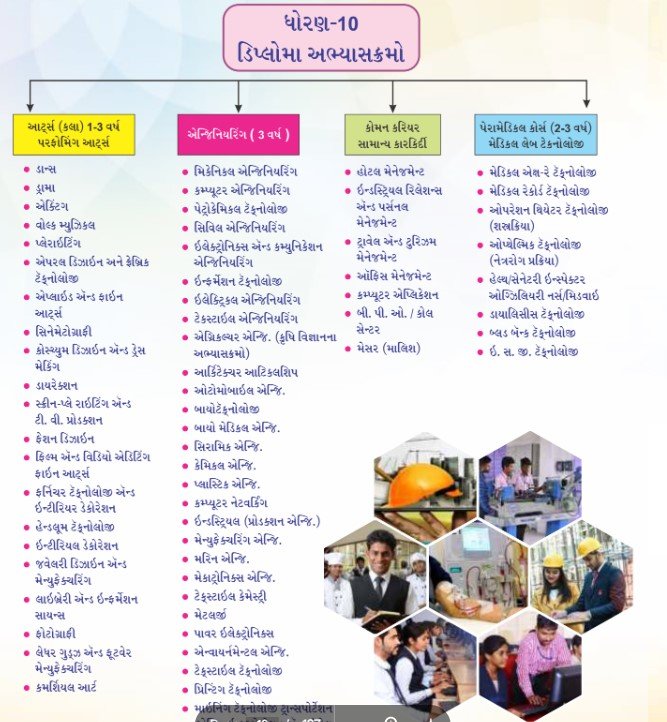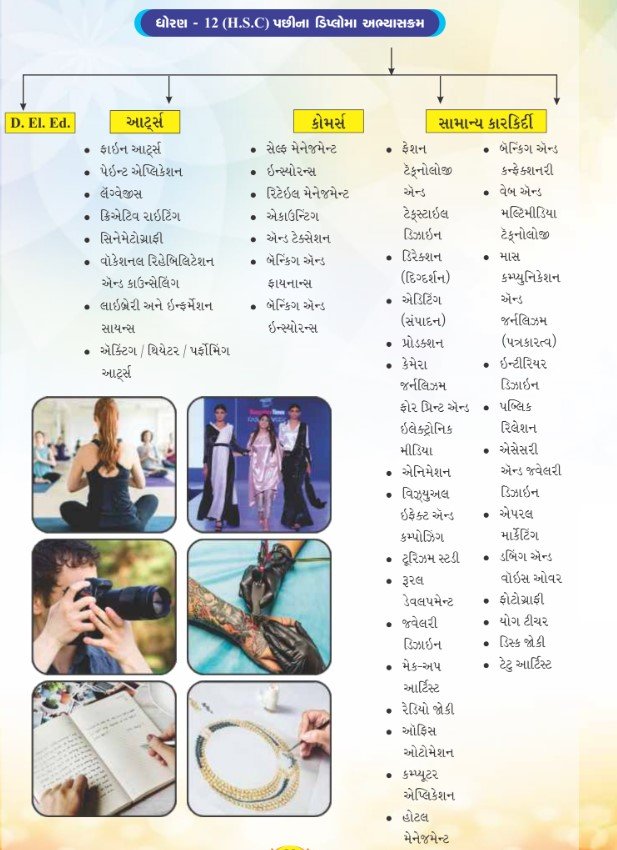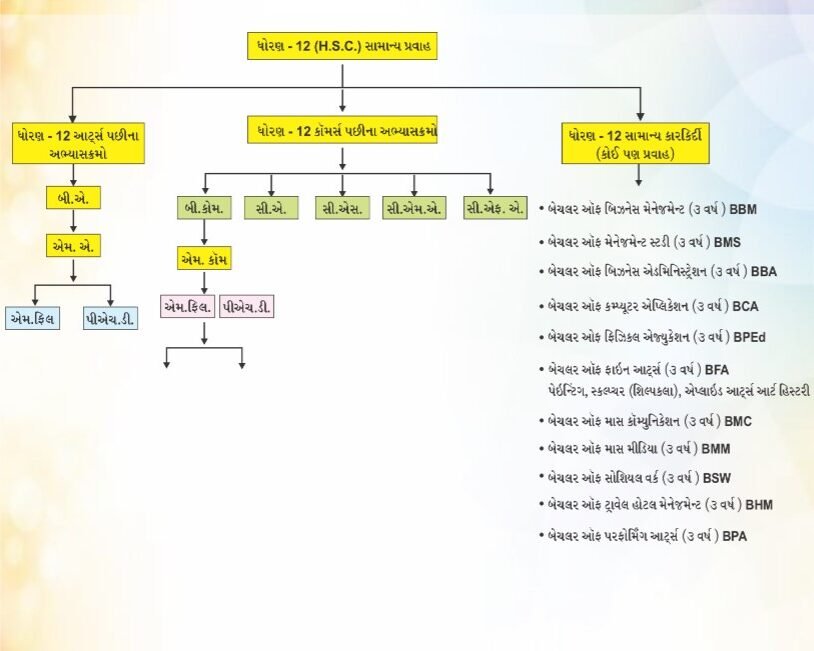After 10th and 12th courses list
Title: Exploring Career-Oriented Courses After 10th and 12th: A Comprehensive Guide
Introduction:
Choosing the right career path after completing 10th or 12th grade is a crucial decision that can shape one’s future. With a myriad of options available, students often find themselves overwhelmed by the plethora of choices. However, understanding various career-oriented courses can empower students to make informed decisions aligned with their interests, skills, and aspirations. After 10th and 12th courses list
💡 You can also get the result of class 12 through whatsapp, save this number in whatsapp and message your roll number. 💡
➡ NOMBER:- +91 6357 300 971
1. Traditional Academic Courses:
– After completing 10th grade, students can opt for traditional academic streams such as Science, Commerce, and Arts/Humanities.
– Science stream offers subjects like Physics, Chemistry, Biology, and Mathematics, paving the way for careers in engineering, medicine, research, etc. After 10th and 12th courses list
– Commerce stream focuses on subjects like Accountancy, Economics, Business Studies, and Mathematics, leading to careers in finance, accounting, business management, etc.
– Arts/Humanities stream includes subjects like History, Geography, Political Science, Sociology, etc., offering career paths in journalism, social work, teaching, etc.
std 10 result analysis PDF file (CLICK HERE)
std 12 science result analysis PDF file (CLICK HERE)
std 12 commerce, ARTS result analysis PDF file (CLICK HERE)


2. Vocational Courses:
– Vocational courses are designed to provide practical skills and training for specific industries.
– Courses like Plumbing, Electrical Work, Carpentry, Automobile Mechanics, etc., offer lucrative career opportunities in the skilled trades sector.
– Vocational courses also include sectors like Hospitality, Tourism, Culinary Arts, Fashion Designing, etc., catering to diverse interests and skill sets. After 10th and 12th courses list
3. Diploma Courses:
– Diploma courses are shorter in duration compared to traditional degree programs and provide specialized knowledge in various fields.
– Diploma courses in Engineering, Computer Applications, Hotel Management, Event Management, etc., equip students with industry-relevant skills and enhance employability.
4. Professional Courses:
– Professional courses are aimed at preparing students for specific professions and require rigorous training and certification.
– Courses like Chartered Accountancy (CA), Company Secretary (CS), Cost and Management Accountancy (CMA), etc., offer opportunities in finance, auditing, taxation, etc.
– Other professional courses include Law, Journalism, Mass Communication, Photography, etc., offering avenues in legal practice, media, advertising, etc.
5. Skill Development Programs:
– Skill development programs focus on enhancing practical skills and employability. After 10th and 12th courses list
– Programs like Digital Marketing, Web Development, Graphic Designing, Data Analytics, etc., are in high demand in today’s digital era.
– Skill development initiatives also encompass Soft Skills Training, Communication Skills, Entrepreneurship Development, etc., fostering holistic professional growth.
6. Integrated Programs:
– Integrated programs combine academic learning with practical training, offering a holistic approach to education.
– Programs like Integrated MBA, Integrated Law, Integrated B.Tech-M.Tech, etc., streamline the educational pathway and provide an edge in the competitive job market.
– Integrated programs are structured to provide comprehensive knowledge and skills required for specific career domains.
7. Online Courses and MOOCs:
– Online courses and Massive Open Online Courses (MOOCs) have gained popularity for their accessibility and flexibility.
– Platforms like Coursera, edX, Udemy, etc., offer a wide range of courses in diverse subjects, allowing students to learn at their own pace from anywhere.
– Online courses provide opportunities for skill enhancement, career advancement, and lifelong learning, catering to the evolving needs of the digital age. After 10th and 12th courses list
કારકિર્દીનું માર્ગદર્શન વિશેષાંક PDF – 2021
કારકિર્દીનું માર્ગદર્શન વિશેષાંક PDF – 2022
કારકિર્દીનું માર્ગદર્શન વિશેષાંક PDF – 2023
કારકિર્દીનું માર્ગદર્શન વિશેષાંક PDF- 2024
Conclusion:
Choosing the right course after 10th or 12th grade is pivotal for building a successful career path. By exploring various options ranging from traditional academic streams to vocational courses, professional programs, and online learning platforms, students can align their education with their interests and career goals. Moreover, seeking guidance from career counselors, mentors, and industry professionals can provide valuable insights and help in making informed decisions. Ultimately, embarking on a journey of continuous learning and skill development is key to thriving in today’s dynamic and competitive world. After 10th and 12th courses list
Studying short-term courses after the 10th grade can be beneficial for several reasons:
1. Skill development: Short-term courses often focus on specific skills that are in demand in various industries. By enrolling in such courses, students can acquire practical skills that can enhance their employability.
2. Exploration of interests: These courses provide an opportunity for students to explore different fields of study before committing to a long-term educational path. This can help them identify their interests and strengths, guiding them in making informed decisions about their future career paths.
3. Supplement to traditional education: Short-term courses can complement the knowledge gained through traditional education systems. They can provide additional learning opportunities in areas that may not be covered extensively in school curriculums.
4. Quick entry into the workforce: Some short-term courses are designed to provide students with the skills needed to enter the workforce rapidly. This can be advantageous for students who want to start working or gain practical experience early in their careers.
5. Flexibility: Short-term courses often offer flexibility in terms of timing and duration, allowing students to balance their studies with other commitments such as part-time jobs or extracurricular activities.
Overall, studying short-term courses after the 10th grade can be a valuable investment in one’s education and future career prospects. It can broaden horizons, enhance skills, and provide a solid foundation for further academic or professional pursuits.





